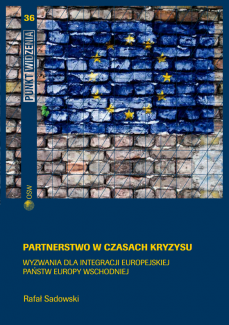Partnership in times of crisis. Challenges for the Eastern European countries' integration with Europe

Over the four years since its launch, the Eastern Partnership initiative has created frameworks and mechanisms for the integration of Eastern Partnership countries with the European Union. Despite this, the partner countries have so far made little meaningful progress in modernisation, implementation of reforms or integration with the EU.Since the European Neighbourhood Policy was launched in 2004, the situation in areas of key importance for the EU, such as democratisation, free-market transformations, European integration, political stability and regional security, has not improved significantly.
In this context, it is legitimate to ask questions about the extent to which the European Neighbourhood Policy and the Eastern Partnership have brought the Union closer to achieving its declared objectives in the relations with eastern neighbours. What is the underlying cause of the dwindling involvement and declining interest in achieving real progress in integration? How may the events that have been dominating the political agenda – i.e. the EU’s financial crisis, the debate on the future of the Union, but also the political processes taking place within the partner countries – affect the future of mutual relations?
Rafał Sadowski – Senior Fellow at the Centre for Eastern Studies specialising in the European Union’s relations with Eastern European and Southern Caucasus countries and the internal situations and foreign policies of countries of Eastern Europe

